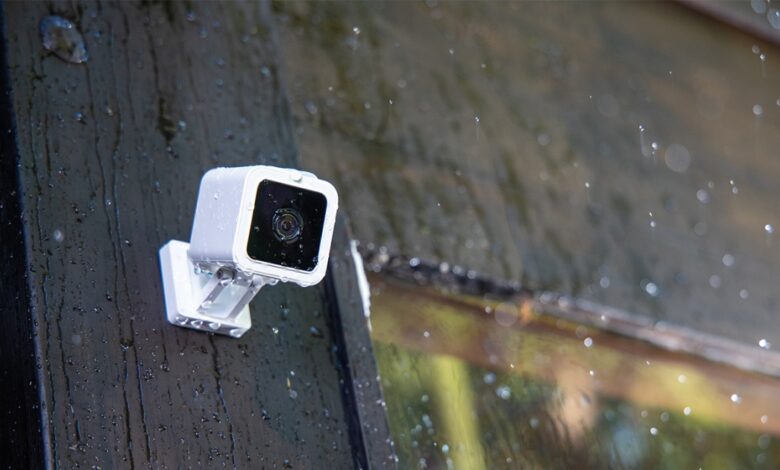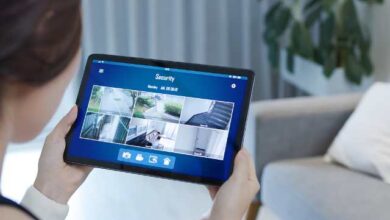Hidden security camera: regulations, tips and more

Hidden Security Camera- The use of surveillance cameras, both visible and hidden, is expanding remarkably in public and private spaces. It’s normal: cameras are a very useful security element, both for their deterrent use and for the information they provide.
However, the installation of surveillance cameras is strictly regulated so as not to compromise rights and freedoms. Thus, whether it is to put a surveillance camera outside, in the office, or even in your home, you have to follow a series of rules and requirements.
In the next few lines we are going to give you all the necessary keys and advice so that you can make the best decision in the installation of security and surveillance cameras.
Is it better to install hidden cameras? What are its advantages? What about its disadvantages? Are hidden security cameras legal in all types of spaces? Before going to a forum with little credibility, stay and read our tips.
Regulations for installing hidden security cameras
You can install hidden surveillance cameras at home, in your company or abroad, as long as you report that the premises are being recorded with homologous signs.
Hidden surveillance cameras, although without being visible, must have signs that make it clear that the specific area in which they are installed is being recorded. Isn’t this a bit contradictory? Well yes, but it is what the norm dictates.
That is to say, they are hidden cameras, but they are not secret for those who pass through the recorded area. It should always be made known to the person who is being recorded. But only the fact, not the location of the devices.
Advantages of hidden cameras
Hidden cameras, even if they are not secret, are very useful and have an advantage over visible cameras. Why?. First of all, they have a tailored design and can be installed in areas where traditional devices do not fit.
But, above all, they allow the subject passing by not to know exactly where they are being recorded and where not: that is, they overcome the biggest disadvantage of visible security cameras.
Although your viewing area is limited, no one (except those who know your location) knows what your viewing area and angle are, and therefore the intruder or thief does not know where it can and cannot be recorded: it does not know the points and blind angles of the cameras.
And what about hidden cameras for home?
Even at home, the installation of hidden cameras must follow the regulations. Let’s give an example: you decide to put hidden cameras in an area of your home where they are doing construction, or in a place where, say, a cleaning worker is working.
Under this scenario, those people must also know that they are being recorded. In any other circumstance, before a judge, the first person who would be committing an irregularity would be yourself.
So, if at any time you have considered putting hidden cameras at home with the aim of monitoring a domestic employee, keep in mind that you cannot do so without informing them of this circumstance.
The evidence that a surveillance or hidden security camera can offer you in the event of a possible robbery in your own home, for example, will not be of much use if you are committing an offense yourself.
And can you install hidden cameras in the garden or around your house? In this case, the same logic operates: hidden cameras abroad must always be properly marked.
You must warn everyone who passes by that they are being recorded by a video surveillance circuit. Similarly, any purpose other than security is not considered legal, so use hidden cameras responsibly.
Hidden cameras for exterior and for companies
The same as at home but on the street and in a company: the people who are being recorded must be informed of it. Its use for security is perfectly legal, but you must inform people of this circumstance.
Thus, for example, in a company, if it is decided to install security cameras, it is important that employees are aware of the existence of these cameras, which are installed for security reasons.
The installation of hidden security cameras is legal or illegal depending on the motivation and the use made of them. In all cases, the recordings must comply with European law, the General Data Protection Regulation (RGPD).
In this sense, it must be clear that “the data and images obtained must be treated in a lawful, loyal and transparent manner” with a single purpose, as we have already explained above: security.
In addition, according to the law, the collection of data must be minimized, taking into account the principle of proportionality and a maximum period of conservation of the same is established, in principle, and if there are no legal proceedings involved, of 30 days.
The law also establishes the way in which all such personal data must be processed: let’s not forget that someone’s image is personal data and must be managed as such.
- How to Fix Android Phone Camera Making Buzzing Noise
- How to Fix Roblox Camera Glitch on Mobile
- How to Fix Blurry Camera on Snapchat
The treatment of images is regulated by Law 4/1997 and the Spanish Agency for Data Protection establishes a series of guidelines. Some of the most important are:
- Prepare a record of video surveillance activities
- Establish a poster indicating the existence of these cameras and the possibility of exercising the rights of access and deletion regulated by the GDPR, etc.
In short, the use of hidden security cameras can be very useful in certain environments and circumstances, but it is important to be very clear about the regulations in order to choose judiciously how and where to install them.





